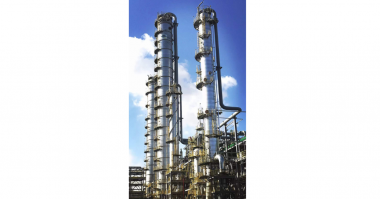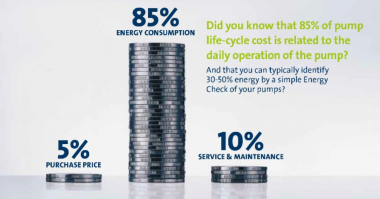The HVAC and refrigeration industries have undergone significant changes with regards to product design and energy efficiency in recent years. At the AHR Expo this year, it was clear that this sector continues to be ever changing. Motor, drive and motor-driven equipment suppliers are all dealing with or preparing for imminent changes to efficiency requirements. What effect these stricter product requirements will have on the market going forward remains to be seen, but it appears that they will more effectively contribute to greater energy savings.
There are many misconceptions associated with efficiency transitions for energy-using products. Often, the estimated electricity savings are not as fantastic as the framework document would have its audience assume. This is no fault of the policymakers; many factors must be considered when implementing such a drastic change into the market.
Namely, legislative entities need to ensure that both the suppliers and customers are not getting a significant advantage, and that the market structure will not be monopolized in any way. Time is another misconception regarding efficiency transitions. Grace periods, loopholes and a lack of enforcement are all concerns when policies are put into place. This was evident in 2010 when the US transitioned to IE3 NEMA Premium motor efficiency requirements. Many suppliers still had IE2 motors in their inventory and were allowed to sell them for the remainder of the year. That is one example, but the key point is that a quick, one-step-fix-all approach is simply not feasible.
So what, then, is being done to combat this? Motor suppliers, as well as pump, fan and compressor manufacturers, at AHR mentioned that they are preparing for stricter product requirements in the near future. When motors undergo product specifications, so too must the motor-driven equipment. The small motor regulation for open, drip-proof (ODP) motors will come into effect in March 2015, raising prices of the affected motors by up to 30%. In 2016, EISA motor regulations will implement stricter requirements in order to avoid loopholes that have been available to motor suppliers for more than four years now. Currently, pump, fan and compressor suppliers do not want to be held accountable for the motors and controls that drive their products because, though they did not make the motors or drives, those products are often sold from these OEMs as a package. The Department of Energy (DOE) is expected to finalize its framework documents for minimum efficiency standards for motor-driven equipment suppliers throughout the next few years, but many of these manufacturers mentioned during AHR that an extended product approach is also gaining support. This means that the entire motor-driven system, as well as its intended applications and environment in which it operates, are evaluated in order to determine its performance requirements.
While it may take some time for full realization, it appears that both suppliers and customers of energy-using products are becoming less wary of higher-efficient products. Most customers are aware of the importance of a life cycle cost analysis now, i.e. it is far from a new concept. Despite an increased level of consumer interest in energy savings, government policy is the only force that can push the market in the right direction. As many AHR exhibitors mentioned, there is not much of a business case to justify the production of higher-efficient products unless it is mandated. New regulations are on the horizon, which IHS forecasts will lead to substantial inorganic revenue growth throughout the next five years as a result of higher prices. The one clear thing is that all manufacturers are going to be held accountable, especially in the large HVAC and refrigeration sector in which so much of US electricity is utilized.
About the Author
 Preston Reine is an analyst in the IHS industrial & medical technology group. As a part of the Motor Driven Equipment subgroup, his areas of expertise include end equipment products such as pumps, fans, and compressors. Preston has done extensive research on the centrifugal pump market and is highly skilled in advanced research methods, statistical interpretation, and public speaking. While conducting his research he has been successful in forming several new working relationships with major suppliers and trade associations in these new areas of study for IHS.
Preston Reine is an analyst in the IHS industrial & medical technology group. As a part of the Motor Driven Equipment subgroup, his areas of expertise include end equipment products such as pumps, fans, and compressors. Preston has done extensive research on the centrifugal pump market and is highly skilled in advanced research methods, statistical interpretation, and public speaking. While conducting his research he has been successful in forming several new working relationships with major suppliers and trade associations in these new areas of study for IHS.
Read more from Preston here: https://technology.ihs.com/Biographies/463365/preston-reine




Comments